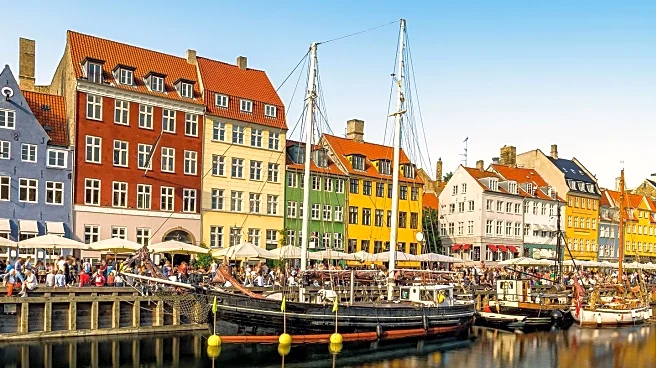What's Happening?
Sri Lanka is focusing on sustainability as a key driver of competitiveness in international trade and supply chains. The country aims to leverage its sustainability credentials to differentiate itself
from larger regional competitors. This approach involves integrating ethical manufacturing, renewable energy, and responsible investment into its economic strategies. Sri Lanka faces challenges due to higher compliance costs, but these can be transformed into opportunities by exceeding sustainability requirements. The country is positioning itself as a sustainable and ethical hub for manufacturing and trade, building on initiatives like the 'Garments without Guilt' campaign in the apparel sector.
Why It's Important?
Sustainability is becoming a critical factor in global trade, with consumers and investors increasingly demanding environmentally responsible practices. For Sri Lanka, embracing sustainability offers a unique opportunity to enhance its competitiveness and attract international investment. By prioritizing sustainable practices, the country can improve its market access and reputation, potentially leading to economic growth and development. This strategy aligns with global trends towards greener supply chains and positions Sri Lanka as a leader in sustainable business practices.
What's Next?
Sri Lanka must continue to invest in creating an enabling environment for sustainability, including developing eco-industrial parks and enhancing compliance with international standards. The country may need to strengthen its infrastructure and policies to support sustainable practices across industries. As regional competitors also adopt sustainability measures, Sri Lanka must remain proactive in its efforts to maintain its competitive edge. Collaboration with international partners and stakeholders could further enhance the country's sustainability initiatives and global standing.
Beyond the Headlines
The focus on sustainability reflects broader shifts in global trade and economic priorities, emphasizing the importance of environmental responsibility and ethical practices. Sri Lanka's approach may serve as a model for other developing countries seeking to enhance their competitiveness through sustainability. The country's efforts highlight the potential for economic transformation through sustainable development, contributing to global efforts to address climate change and environmental challenges.









